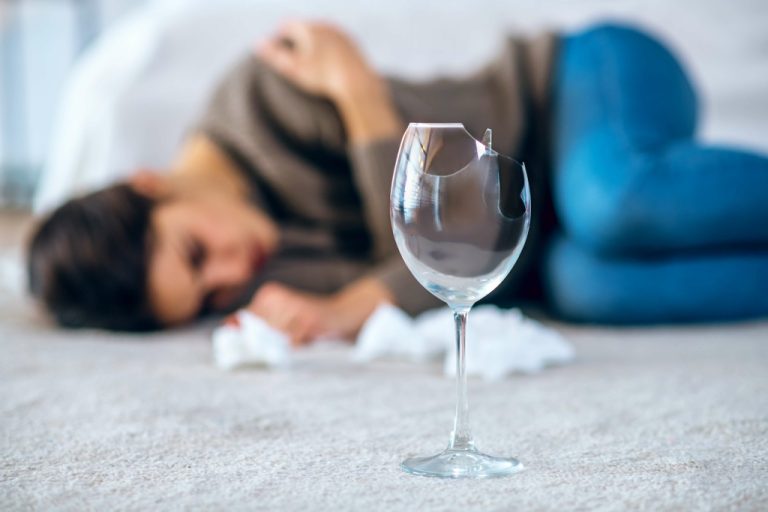Alcohol use disorder Symptoms and causes
There is considerable variation in the availability and access to specialist alcohol services both in community settings and in inpatient settings where provision of specialist psychiatric liaison services with responsibility for alcohol misuse is also very variable. Only 30% provide some form of assisted alcohol-withdrawal programme, and less than 20% provide medications for relapse prevention. Of the residential programmes, 45% provide inpatient medically-assisted alcohol withdrawal and 60% provide residential rehabilitation with some overlap between the two treatment modalities. The alcohol withdrawal programmes are typically of 2 to 3 weeks duration https://givingcommon.org/blog/how-to-cheat-a-alcohol-hair-test-myths-and-realities/ and the rehabilitation programmes are typically of 3 to 6 months duration. Around one third of people presenting to specialist alcohol services in England are self-referred and approximately one third are referred by non-specialist health or social care professionals (Drummond et al., 2005). The majority of the remainder are referred by other specialist addiction services or criminal justice services.
Recommended articles

Further, they http://intencia.ru/Pages-view-101-word-%CE%E4%ED%E0%EA%EE.html were more likely to have a family history of alcohol misuse, and began drinking and developed alcohol dependence earlier than those without such a history. Alcohol, the most commonly used substance in the United States, has far-reaching health consequences that impact not only individual patients but the entire healthcare system. Alcohol use in and of itself is not problematic but exists along a spectrum from low-risk use to alcohol use disorder (AUD). The diagnosis, based on the Diagnostic and Statistical Manual of Mental Disorders, Fifth Edition, criteria, ranges from mild to severe, with withdrawal symptoms and tolerance as key indicators. Screening by primary care clinicians, supported by the United States Preventive Services Task Force, facilitates early detection. Treatment involves shared decision-making, combining pharmacotherapy and behavioral therapy with interdisciplinary collaboration essential for comprehensive care and improved outcomes.
Interactive charts on alcohol consumption
The remaining variation is accounted for by environmental factors and their interaction with genetic factors. While no single gene for alcohol dependence has so far been identified, a range of genes that determine brain function have been implicated (Agrawal et al., 2008). There is some evidence that our findings or extent to other industrialized nations and countries like the US, where we see similar prevalence rates of psychiatric conditions and alcohol use conditions as well. Maybe there’s something about the norms these countries that is contributing to the onset of these alcohol problems. That being said, there may be variations within country, so across different groups within a country.
Rise in alcohol deaths among women

Patients with complex psychological issues related to trauma, sexual abuse or bereavement will require specific interventions delivered by appropriately trained personnel (Raistrick et al., 2006). As noted above, many people will recover from alcohol-use disorders without specialist treatment and many will reduce their alcohol intake following a change in circumstances, http://pchela-i-uley.ru/bolezni-pchel-2/8/ such as parenthood, marriage or taking on a responsible job. Hazardous and harmful drinkers may respond to a brief intervention provided in primary care without requiring access to specialist treatment (NICE, 2010a).

What are the symptoms of alcohol use disorder?
Learn up-to-date facts and statistics on alcohol consumption and its impact in the United States and globally. Explore topics related to alcohol misuse and treatment, underage drinking, the effects of alcohol on the human body, and more. Genetic, psychological, social and environmental factors can impact how drinking alcohol affects your body and behavior.
- “The main finding is that approximately 50% of patients who consumed alcohol at baseline reported decreased alcohol use after initiating their anti-obesity medication, says study author Lisa Matero, a health psychologist and researcher at Henry Ford Health.
- Relapse represents a major challenge to treatment efforts for people suffering from alcohol dependence.
- The dopamine system is also activated by stimulant drugs such as amphetamines and cocaine, and it is through this process that the individual seeks more drugs or alcohol (Everitt et al., 2008; Robinson & Berridge, 2008).
- Enquiries in this regard should be directed to the British Psychological Society.
- This article introduces a number of AUD topics that link to other Core articles for more detail.
